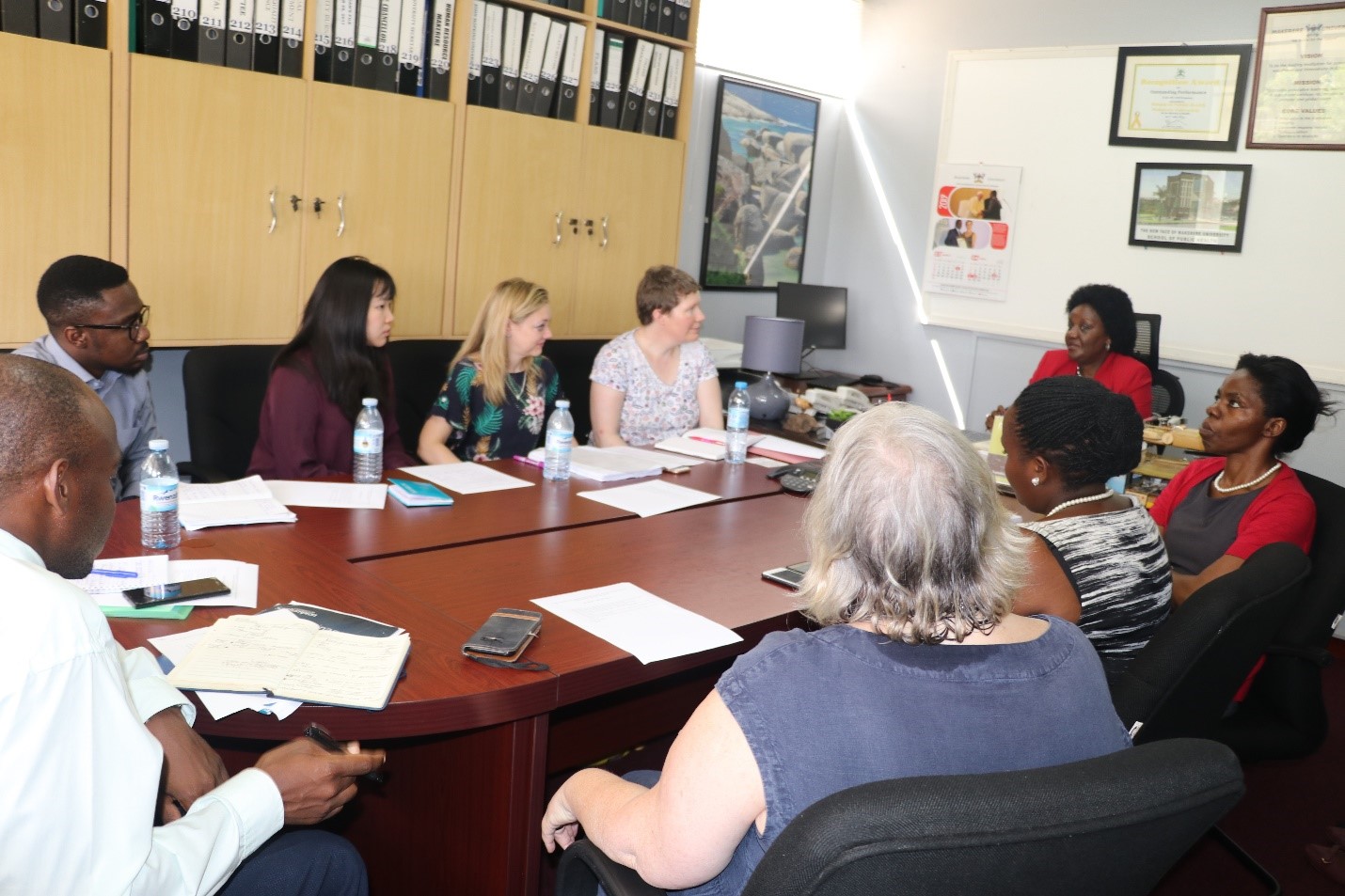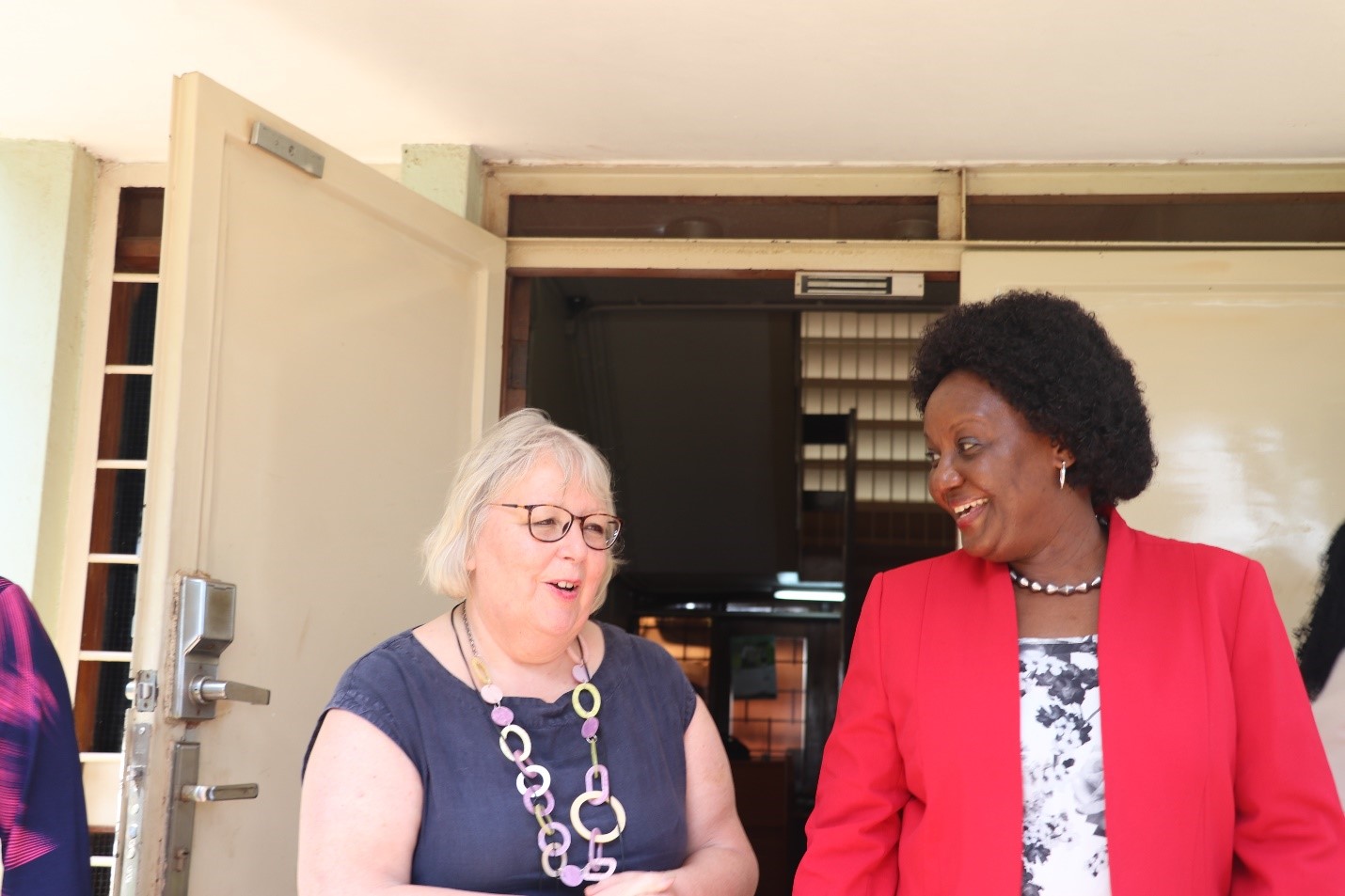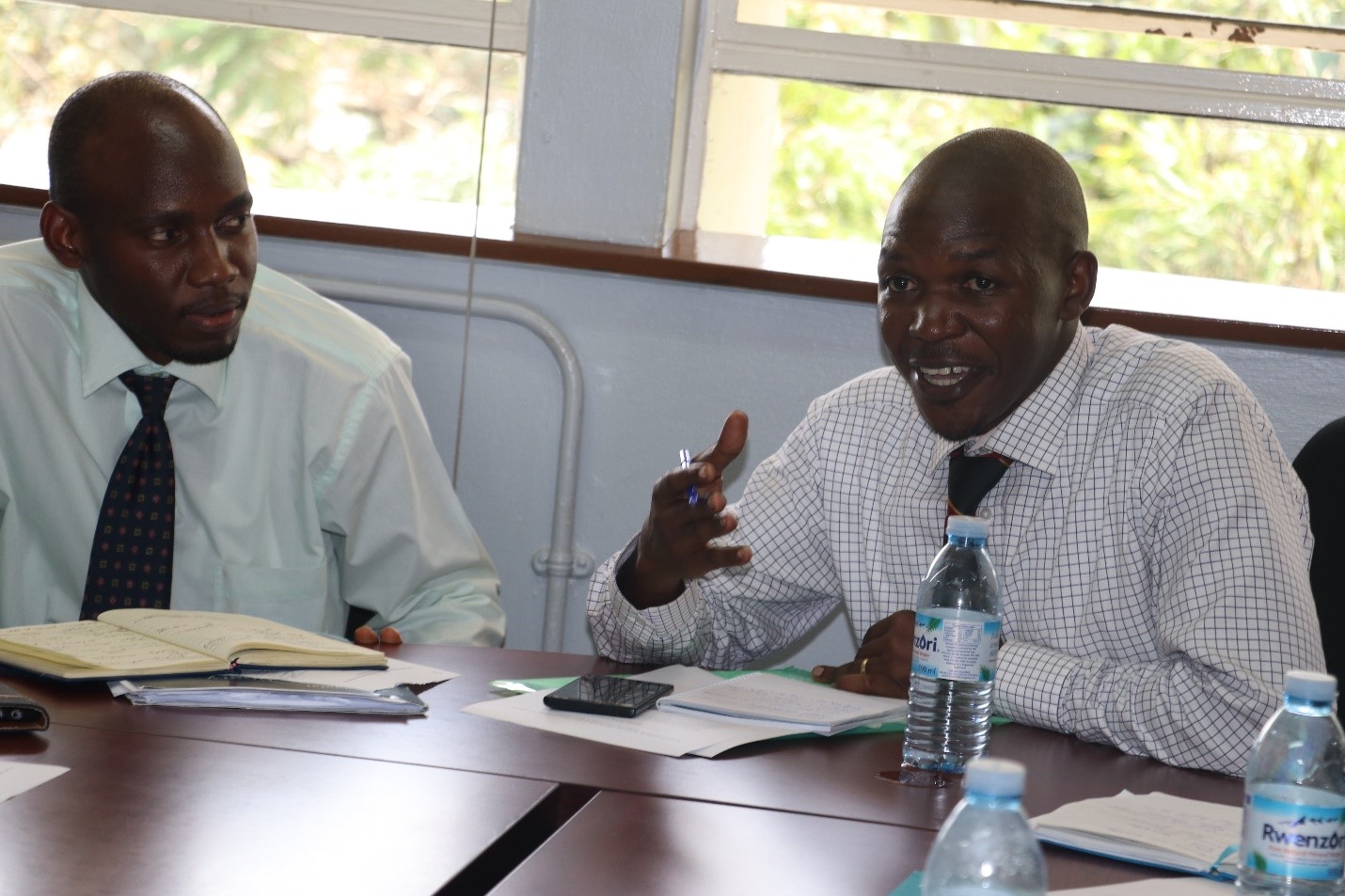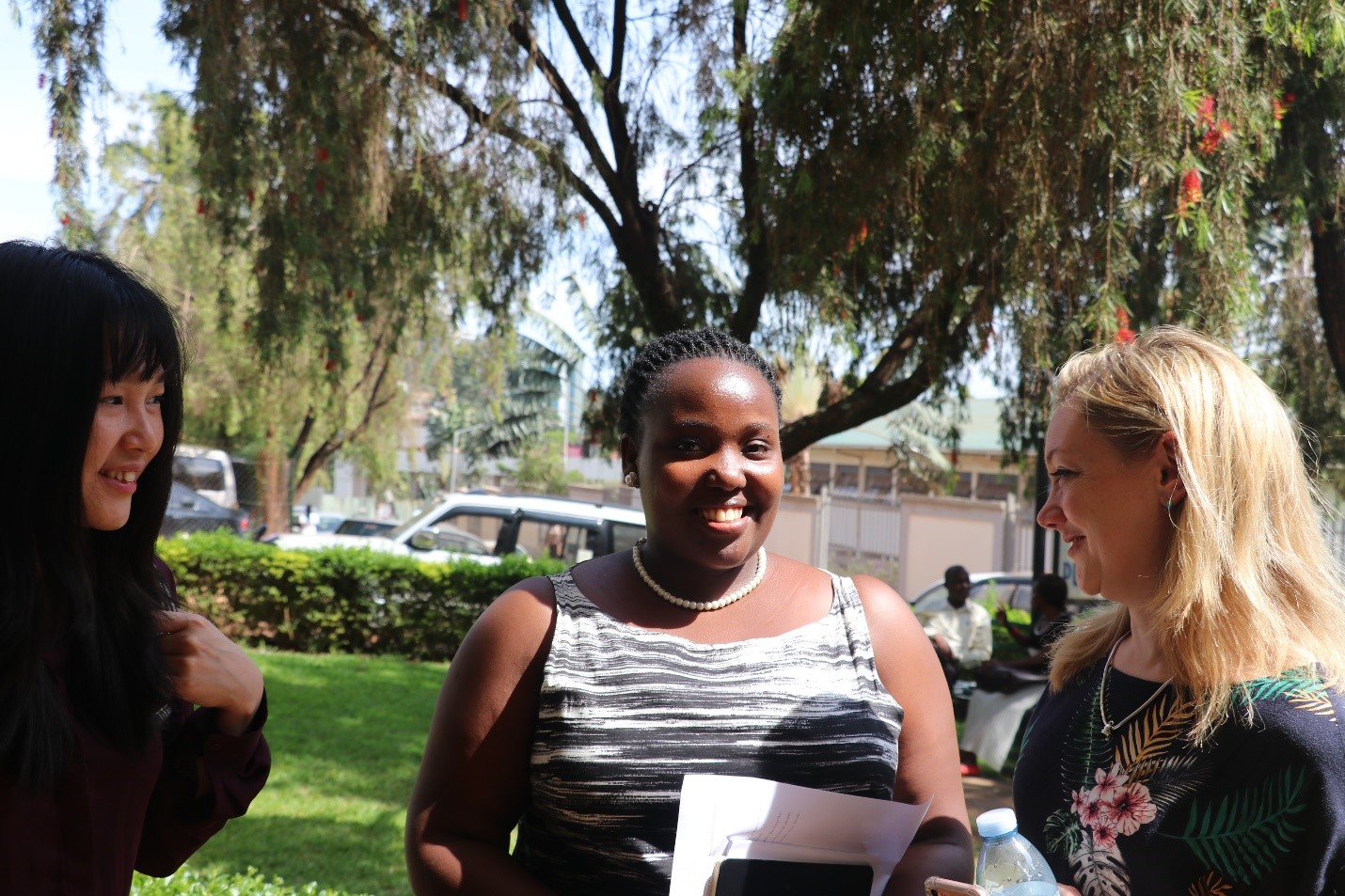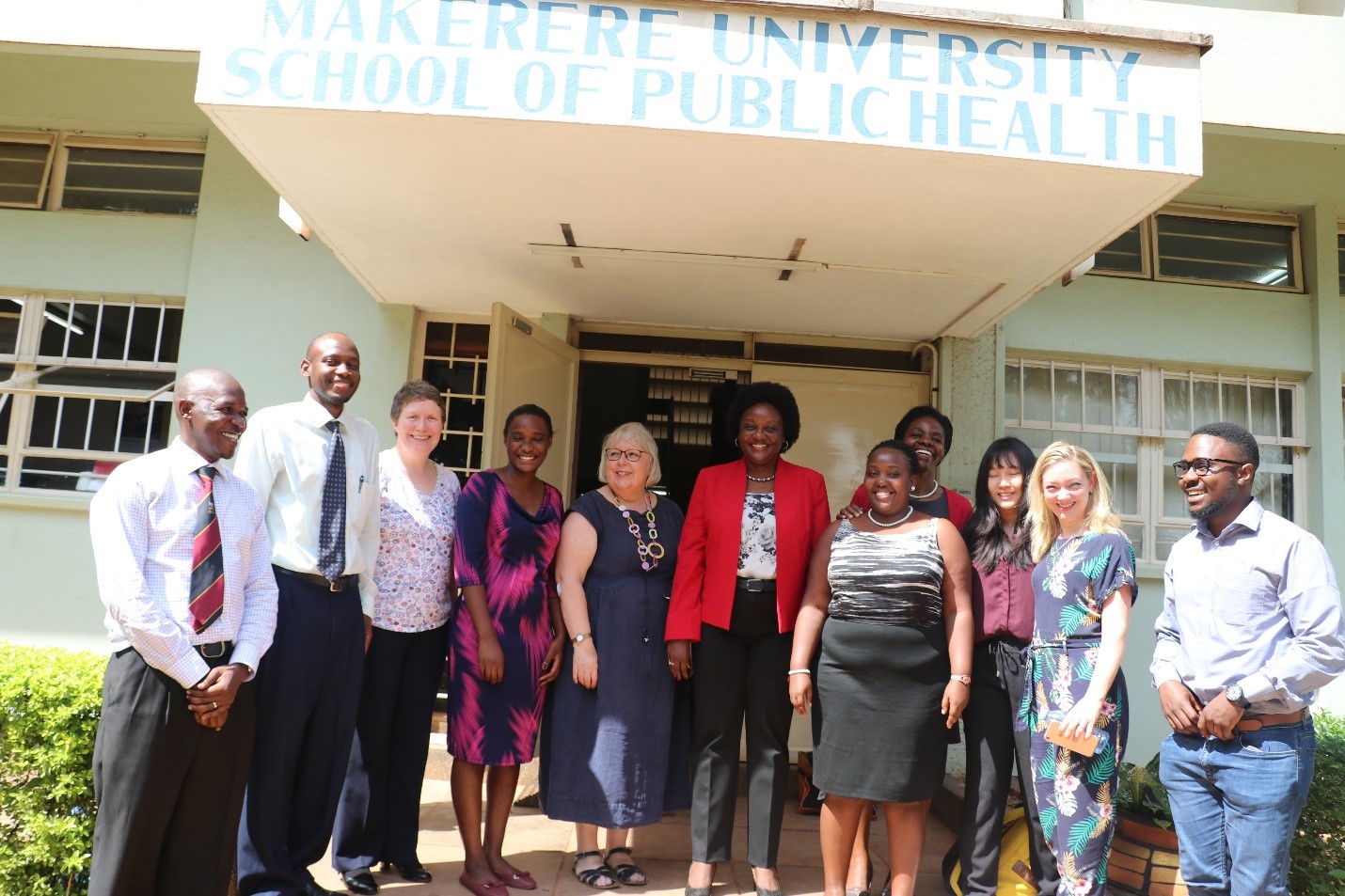
On the afternoon of April 14th 2019, a team from the UK that included Nottingham Trent University (NTU) staff met with a team from Makerere University School of Public Health (MakSPH). The meeting focused on bringing the Dean of MakSPH up to speed about a new project, "Strengthening Antimicrobial Stewardship (AMS) in Wakiso district to be implemented between the two universities. This project is funded through the Commonwealth Partnerships for Antimicrobial Stewardship Scheme, which is funded by the UK Department of Health and Social Care (DHSC) through the Fleming Fund for the benefit of the UK and partner country health sectors.
The UK team had Linda Gibson, an Associate Professor at the School of Social Sciences at NTU. It also had, from NTU, Dr. Jody Winter, a Principal Lecturer in Microbiology. Two other members on the UK team were from Buckinghamshire Healthcare NHS Trust. These were: Claire Brandish, a Lead Antimicrobial Pharmacist and Bee Yean Ng, an Antimicrobial Pharmacist.
Giving a brief history of the 10-year partnership between MakSPH and NTU, Dr. Gibson mentioned that the two institutions have been running several projects together. Currently, “the SPICES (Scaling-up Packages of Interventions for Cardiovascular disease prevention in selected sites in Europe and Sub-Saharan Africa) Project, a five-year project is the biggest,” she said. The collaboration has been having challenges with mobility as the UK partners could travel to Uganda while Ugandan counterparts particularly students could hardly travel there. However, Dr. Gibson said that a two-year grant from the European Union under the Erasmus+ scheme was obtained which will support mobility. With this grant, two undergraduate students, two masters’ students and three faculty members will be travelling to UK for a two-months exchange programme this year. Dr. David Musoke, the Uganda Partnership Lead explained that the participants of the exchange programme will benefit from training, mentorship and participating in research activities in the UK.
Dr. Gibson was however more thrilled about the new antimicrobial stewardship (AMS) collaboration. “This collaboration is university-wide beyond public health at MakSPH and social sciences at NTU,” she said, referring to the collaborations that have happened in the past between the two universities. “It is a year-long project and I am looking forward to further multi-disciplinary collaborations beyond what we already have. It is exciting to be working with a number of people,” she finished off.
Giving a brief insight into the collaboration, Dr. Musoke, who is a Lecturer in the Department of Disease Control and Environmental Health (DCEH) at MakSPH explained that the project will be taking a One Health approach. This means that different disciplines in the Makerere University have been engaged to implement the project. Pharmacy is a critical part of the partnership and Dr. Freddy Kitutu from the Department of Pharmacy in the School of Health Sciences will be leading the pharmacy side of the collaboration. The College of Veterinary Medicine, Animal Resources and Bio-security (COVAB) also has members that are part of this partnership led by Prof. Lawrence Mugisha.
The project, which will focus on Wakiso district, will see health facility-based practitioners trained on AMS. Since Community Health Workers (CHWs) prescribe medicines for simple ailments among children under 5 years of age, they too will benefit from the training. Importantly, the project will establish an online community of practice on AMS. “This will be a one-stop area where all students, researchers, academia and practitioners in this field can share experiences and learn from each other,” Dr. Musoke explained to the meeting.
Dr. Kitutu said he was happy to be a part of the partnership as a lead from pharmacy. A member of the National Taskforce on AMR, he said he will be infusing knowledge from that platform into the project.
Uganda to benefit from UKs AMR Practice
While Uganda is just starting to fully recognize AMS, the UK has been involved in its awareness for much longer. “There has been this big awareness campaign going on about patients who unnecessarily demand for antibiotics and how this can be dealt with,” explained Brandish. She added that, “This is a shared problem globally that has a big impact on the economy.” She explained that UK has seen an 18% reduction in AMR use since these campaigns started. However, this has not been achieved through a single method but a variety of approaches. Brandish warned that for positive feedback, practitioners should be communicated to tactfully that over issuing antimicrobials is not desirable. Advocates have got to be tactful and probably propose that the issuance of antibiotics can be improved in order to get health practitioners on their side.
The Department Chair of DCEH at MakSPH Dr. Esther Buregyeya, where this project is housed, was also present at the meeting. She welcomed the new project as well as exchange opportunity among students and staff, and stressed that since Uganda has just launched a National AMR Action Plan, the exchange programme will greatly benefit learning and the understanding of AMR Stewardship.
Online Community should identify gaps
Speaking in this meeting, the Dean of MaksPH, Prof. Rhoda Wanyenze said she was excited about the partnership and looking forward to what will come out of it. However, she requested that other than the sharing of lessons learnt by the online community of practice, the partnership could also consider looking at the gaps in AMR practice in Uganda. “If these gaps are identified, we can find ways of adding value and doing more research,” she said.
She also said that the research on AMR should also reach out to traditional healers since it was found that some herbal concoctions actually contain conventional drugs.
This AMS partnership comes after a series of several collaborations that have seen MakSPH working with NTU for over 10 years. The first was a small grant of 5,000 pounds was given through THET (Tropical Health and Education Trust).


